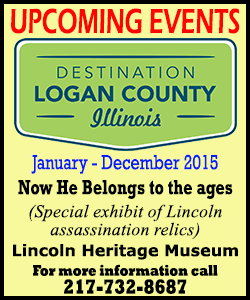|
 The woman arrived at the capital's Royal Free hospital, Britain's
designated Ebola treatment center, in an ambulance accompanied by
several police vehicles, a Reuters witness said. The woman arrived at the capital's Royal Free hospital, Britain's
designated Ebola treatment center, in an ambulance accompanied by
several police vehicles, a Reuters witness said.
"We think so far certainly the clinical care for her is going as
expected," said Paul Cosford, Director for Health Protection at
Public Health England, the government body handling Britain's
response to Ebola, on BBC radio.
"The agreement we have across the country is that the right place
for treatment for people with Ebola is at the Royal Free in their
specialist facilities... it's a clinical decision."
The hospital's 'High-level isolation unit' will allow doctors to
treat the patient while she lies inside a plastic tent, limiting the
scope for the disease, which is transmitted by contact with bodily
fluids, to be passed to medical staff.

The World Health Organization said on Monday that the number of
people infected by Ebola in the three West African countries worst
affected by the outbreak - Sierra Leone, Liberia and Guinea - had
passed 20,000, with more than 7,842 deaths so far.
The National Health Service worker, who had been working in West
Africa with the charity Save the Children, flew from Sierra Leone to
Glasgow late on Sunday on a British Airways flight via Casablanca in
Morocco and London's Heathrow.
She was diagnosed with the deadly virus on Monday after developing
symptoms overnight and was initially treated at Scotland's Gartnavel
Hospital.
"I'm satisfied... that the procedures, the protocols, the things
that we've been practicing now for months and months have now kicked
in," Health Minister Jeremy Hunt said. Hunt led a meeting of the
government's emergency response committee late on Monday.
Scottish authorities have said the illness was diagnosed at an early
stage, meaning the risk to others was considered extremely low, but
they were investigating all possible contacts with the patient.
[to top of second column] |

Britain began screening passengers arriving from West Africa for
symptoms of Ebola in October as part of its preparations for a case
of the disease on British soil. Hunt said at the time that he
expected to see "a handful" of cases arriving in Britain.
Earlier this year the Royal Free hospital successfully treated
another British aid worker, William Pooley, who was flown home for
treatment after being diagnosed with the virus in Sierra Leone.
Scottish First Minister Nicola Sturgeon said a second patient in
Scotland was being tested for the virus after returning from West
Africa, but had a low probability of having the virus, having had no
known contact with infected people.
A third person was undergoing tests for the Ebola in Cornwall,
England and was being treated in an isolation unit, a statement from
Public Health England said. The results of that test would take at
least 24 hours, the statement said.
Public Health England's Cosford said that around 200 people had been
assessed or tested for the virus in recent months.
(Reporting by William James, Andy Bruce and Neil Hall; Editing by
Andrew Heavens and Dominic Evans)
[© 2014 Thomson Reuters. All rights
reserved.] Copyright 2014 Reuters. All rights reserved. This material may not be published,
broadcast, rewritten or redistributed.
 |